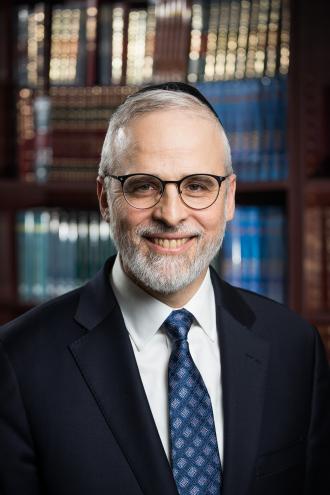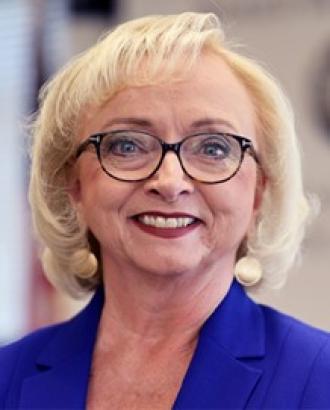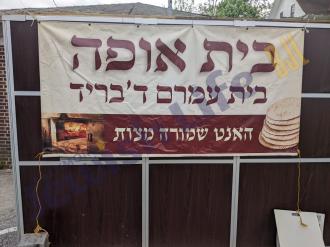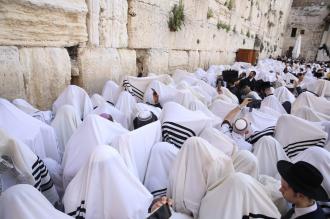Rabbi Bentzion Yaakov Wosner, Av Beis Din Shevet Halevi Monsey-Beit Shemesh, has come out with a second letter in support of the Crown Heights Eruv, laying down the Halachic basis for its validity, and going so far as to claim that “it’s impossible that the Lubavitcher Rebbe was opposed to the construction of an Eruv in Crown Heights, and that anyone who says so is being deceitful.”
A few weeks after the completion of the Crown Heights Eruv, during which several Rabbonim – including the members of the Crown Heights Beis Din, headed by Rabbi Avrohom Osdoboa, and Rosh Kollel Rabbi Yosef Heller – came out in fierce opposition to it, Rabbi Wosner released a letter in support of the authenticity of the Eruv and in defense of those who use it.
Following the release of that letter, two prominent Rabbonim – Rabbi Meir Weissmandl, Av Beis Din of Nitra Kehilah in Monsey, and Rabbi Leibel Zajac, director of Agudas Chasidei Chabad of Brazil – released harsh responses, castigating Rabbi Wosner for contradicting the ruling of the local Beis Din in their own jurisdiction.
In this second, more comprehensive letter, Rabbi Wosner elaborates on the Halachic sources that support the Eruv’s validity, and claims that the Lubavitcher Rebbe certainly would not have been opposed to its construction.
We present both the original Hebrew text of the letter, as well as a free translation of the letter.
Free translation
Rabbi Benzion Y. Wosner
Rosh Beis Din Shevet Halevi Monsey – Beit Shemesh
With the help of G-d, 16 Tammuz (July 22), “Behold, I place before you My Covenant of Peace”, 5776 (2016)
Peace and great respect towards the Rabbis, The Torah Giants (May they live for many good years, amen), Community Leaders and all residents of Crown Heights (may G-d be with them).
Regarding the Eruv which was set up recently in your community, Crown Heights (built under the direction of a respected Rabbinical Court and supervised by The Rabbinic expert Rabbi David Aharon Tzubeli with other Rabbis), the Community is divided: some want it and are happy with the Eruv as it is, and some oppose it for various reasons. The two sides came to me, some in support of it, and some against. I, as is known, strongly side with its supporters, in line with Jewish Law.
Since then, it has become known to me that criminals have destroyed the Eruv, while nullifying the Eruv around the neighboring community as well. Besides the desecration of
G-d’s name and the holy Shabbos, they have committed theft and caused damage and distress to many, and in a manner that is impossible to [fully] rectify. Woe to us that such a thing happens in our days.
Since other Rabbis are not sufficiently addressing this issue, I find it necessary to speak my heart and mind, particularly to demonstrate and prove the mistaken stringency of those in opposition.
By way of preface, it has been more than 45 years since I had merited [to begin] a rabbinical apprenticeship with my father, the Baal Shevet Levi (may the memory of the righteous be for blessing). As is known, his decisions in Jewish Law were accepted by communities around the world. From him I observed and learned three essential [principles] in deciding Jewish Law:
Do not deviate from the decisions in the Code of Jewish Law and that which has been established and practiced by the Jewish People, even to a hairsbreadth.
Do not compromise in any matters relating to the Commandments of the Torah. Rabbis should bravely fulfill the directives of the Torah, “And do not be afraid of the face of any man”. And as the saying of King David peace be upon him, (Psalms 119) “And I will speak your statutes before kings and not be ashamed”.
In addition, pursue compromise and peace with everyone to whatever degree possible; this is the approach of Torah Sages.
Since I have merited, with G-d’s help, to oversee the Kosher status of many Eruvin throughout the world, I consider it important and appropriate to lay out “general and foundational” words on the topic which are relevant to all Jews, and to Rabbis in particular.
In every generation there emerge individuals who are opposed to Eruv
The fact that there are some who oppose the Eruv, is nothing new. From the times of the early responsa on Jewish Law, pretty much in any place where an Eruv was set up, there would usually be found a handful of individuals who opposed its installation. This is a puzzling thing that we do not find by any other mitzvah of the Torah. In truth, all who are involved in this Mitzvah wonder why this is so.
The Depth [behind] King Solomon’s establishment of [the Mitzvah of] Eruv
There is a great light and importance in fulfilling the Mitzvah of Eruv. Because G-d created balanced oppositional forces in the world there is also a powerful opposition to it. For [the Mitzvah of] Eruv was established by King Solomon, the Father of Wisdom, as is stated in the Talmud (Shabbos 14b; Eruvin 21b). In my humble opinion, his primary intention was: since the [forbidden] Shabbos labor of carrying [in a public place] is a “unique labor” among the 39 [forbidden] labors, the [potential] to stumble in it is extremely common and likely. This is to such a degree that even those who are [otherwise] exemplary [can easily] stumble in it. As we learn clearly from the warning of Chananiah (Shabbos 12a) “one must examine his pockets before Shabbos”. Rav Yosef praised this, [calling it] “a major law for Shabbos”. Rashi explains that there is a major matter [at stake] here, “to distance people from transgressing a Shabbos prohibition”. This [forbidden] labor is common to the point that the Talmudic Sages deemed it necessary to convey an extreme warning, for even the best of intentions [can not fully ensure] that it will be avoided. The Chasam Sofer writes this clearly, (Orach Chaim chapt. 99). The reason is because it is a unique labor that is impossible to fully prevent through pre-Shabbos preparation (unlike trapping, building, writing, roasting and cooking etc.), for there is [very often] a need to carry on Shabbos itself. Therefore, Solomon used all his strength to seek a way to be lenient and to save the masses from sin. He examined and found with his great wisdom [a way] to allow carrying even from domain to domain and within alleyways; through installing Eruvin (according to the parameters spelled out in Jewish Law), which equalized big cities into private domains through partitions, doorway markers etc. This establishment caused such great joy on High and down below, that the Holy One, Blessed be He Himself, so to say, made known his agreement and joy via a Heavenly Voice (Bas Kol). “If My son is wise, My heart is exceedingly joyous”.
The benefits of Eruv generally and specifically
This joy [concerning the establishing of the Mitzvah of Eruv] applies to its use throughout history, even nowadays. There are three great benefits to it:
Through Eruv people are prevented from transgressing the prohibition of carrying and transferring [from domain to domain] which is a frequent activity. (See below in the name of the Rosh and the Tashbatz; also in the writings of the Beis Yosef and the Bach in the Code of Jewish Law chapter 395).
Eruv enables [fulfillment of the Mitzvah of having] enjoyment on Shabbos. As stated by the commentaries (Perisha on chapter 395), “It is a mitzvah to seek to install Eruvin… to bring enjoyment, in order to take walks or to carry food. And this is a mitzvah, as is stated, ‘…and call the Sabbath delight…’”.
Eruv brings about increased peace between families, neighbors and friends. (See Tanchuma below, Rabbeinu Channanel {Eruvin 81a}, and the Chasam Sofer {Code of Jewish Law chapter 99}).
The bottom line is that there is a great light and importance in fulfilling the Mitzvah of Eruv. Commensurate to its importance there is also a powerful opposition to it. This is through the forces of negativity that arise in any given time and place to prevent its installation, often from behind a mask of piety and stringency. This is a general principle that can be observed by all mitzvos; when there is something great to be accomplished, there will be found opposition and obstruction in corresponding measure. (See Orach Chaim {Chukas, Tazria-Metzora})
One can observe that most opposition is based upon flawed logic, nondescript concerns or unsupported opinion. This opposition always causes suffering and quarreling within communities. As it was with Korach and his congregation, so it is in our time. They present a facade of zeal and piety, and concern for the holiness of Shabbos. Yet in truth, they act as agents of the forces of negativity, rebelling against the Torah of Moses, by disputing the words of the Sages as expounded in the Code of Jewish Law. Ultimately, they end up causing many Jews to violate Shabbos.
In order to apply a sense of order and equanimity between those supporting the Eruv and those against, it is necessary to preempt the objections to the Eruv, which generally fall in to one of three categories:
Objections brought with support from the Code of Jewish Law and its commentaries.
Objections with regard to what has been the customary practice.
Objections based on other reasons and by inventing novel decrees. For the most part, these objectors, whether Torah Scholars or unlearned, are not experts in the Laws of Eruv. Nowadays this occurs very often in other areas of Jewish Law; these Rabbis [issuing decrees without expertise] are called “cleverly wicked” by the Sages of the Talmud. Once, when I was visiting Melbourne, Australia, I heard about events that involved the Chabad Community in Sydney and a heated controversy over the rebuilding of a old Mikvah (Ritual Bath). The question was whether to rebuild it according to a certain Chabad custom or not (with the water reservoir under the Bath or to the side of it). At the time the Rabbi of the community was my friend Rabbi Groner (may peace be upon him). For six months, as the controversy raged, he refused to share his opinion on the matter, until many demanded, “how can you remain silent?” One Shabbos morning, he stood at the lectern and said, “many are wondering about my silence on this controversy. I would like to ask, whomever among you who have learned the laws of Mikvah, and know the difference between having a water reservoir under the Bath or to the side of it, please raise your hands.” At this point, the room was quiet, and no one raised their hands. The Rabbi continued, “I will now share my opinion, but only on condition that whoever does not know the laws of Mikvah will remain quiet.” The same can be applied to our discussion: whomever is not an expert on the laws of Eruvin remain quiet, and not be “cleverly wicked”, in the words of the Sages.
Responses:
Regarding objections brought with support from the Code of Jewish Law, for example, that there is a concern over a Public Domain [which could render the Eruv invalid]; that a certain road which passes through the area of the Eruv has all 5 conditions which would classify it as Public (as outlined in the Code of Jewish Law chapter 345). Or that someone observed that a certain pillar [that is part of the structure of the Eruv] is not pointing upwards properly, or is torn or is crooked etc. In all of these instances we are obliged to humbly listen to the objections and to clarify what the Code of Jewish Law indicates. If their observations were accurate, then each detail must be fixed according to Jewish Law.
There is no Public Domain nowadays
With regard to the objection which is commonly heard from the masses, who scream, “Public Domain, Public Domain, Public Domain [a designation with full legal strength] Scripturally” etc., anyone with a thorough familiarity of this law knows that this is complete ignorance. Because practically, nowadays there is no place on earth which can been classified as a true Public Domain, in which it is fulfilled all 5 conditions. As Reish Lakish says in the Jerusalem Talmud (Eruvin 8:8), “there is no Public Domain in this world or in this time.” Many early commentaries cite his approach and are lenient in this matter (the Rosh and Tosefos {Shabbos 64b}, Beis Yosef {chapter 303 et. al}, the Rema, the Taz, Magen Avroham {chapter 346 et. al}, and many others). This is even clearer when considering that there are many, many details that distance us from the Scriptural designation “Public Domain” which is exemplified by the camp of the Jewish People in the desert [in the time of Moses]. Particularly considering buildings and stores which can give large cities the designation “Private Domain” (Beis Ephraim, Chasam Sofer and other later commentaries). As the Chazon Ish writes, “… the conclusion: even large cities can be permitted [carrying] through making doorway markers.” He concludes, “this permission can be applied to the large cities of our times”.
2) Regarding objections with regard to customary practice:
If someone objects to making an Eruv due to the claim that it has been a custom not to make an Eruv in that place, we examine the source of this custom. As is stated in Tosefos (Bava Basra 2a), “There are
customs upon which we do not rely, even in those places where the Torah states that the Law goes according to the custom of the place.” Such is the case when one comes to prevent the installation of an Eruv based on the fact that there has not been one in that place before. Such a claim has no merit. There are many reasons why an Eruv has not yet been erected: 1) no one took the initiative to install it, 2) lack of funds, 3) neighbors objections, 4) opposition from the government or the municipality, 5) there was no one expert in the laws of Eruv present (as is known, there are very few who have mastered this area of expertise). If there is still a doubt, it is clear from many sources (the Talmud, the Rosh, the Tashbatz, the Chasam Sofer and many other later commentaries) that from the times of King Solomon until the era of the Talmud and beyond, it is the custom to make an Eruv in every city [as long as the government does not prevent it as is currently the case in many places].
3) Objections based on other reasons and by inventing novel decrees
Frankly, most of the objections to Eruv arise from reasoning not supported by Torah sources. Rather, they reflect reasoning and new decrees that are not authorized by our Torah tradition, the vast majority of which only reflect the feelings of individuals. For example, it happened once that my father was approached by certain zealous people who falsely claimed that Ocean Parkway [in Brooklyn] and Jabotinsky Street in Israel had 600,000 passersby every day. Based on this misinformation, he ruled strictly [to forbid Eruv construction]. As it turns out, there was not even close to that number of people per day. Nevertheless, they sought to forbid construction. The Eruv built in Chicago testifies to my father’s true perspective on the issue. These people were basing their convictions upon their personal feelings, not Torah learning. In truth, the general principle is that “the law is according to the lenient opinion with regard to Eruv.”
False Prophets
An additional point, since we observe that all the Sages of the Talmud, the Code of Jewish Law and its later commentaries speak about the tremendous obligation to actively seek [opportunities to install Eruvin]. Those who oppose it are plainly like “false prophets”, those who fraudulently speak in G-d’s name. The grave nature of such speech and its punishment is stated clearly in the Torah. The Rosh wrote concerning a certain Torah scholar who opposed Eruv that he be completely excommunicated, and that if this were the era of the Temple [in Jerusalem] he would be stoned as a Rebellious Elder, even though the scholar brought proof from the Talmud to accompany his reasoning.
New decrees disrespect and mock the Torah and the Sages
I have heard over the years many examples given as rationale for new decrees: 1) since nowadays people do not bring their dough to be baked in a communal oven, there is longer need for Eruv, 2) people will err regarding the boundaries of the Eruv, 3) perhaps the Eruv will become invalid on Shabbos, 4) people will come to carry even in places without Eruv, 5) people will play ball games on Shabbos, 6) people will ride bicycles on Shabbos, 7) the Eruv will cause men and women to mingle in the streets etc.
First of all, since the codification of the Talmud, we do not have the authority to create new Rabbinical decrees, as Maimonides and other commentaries confirm (among them the Rosh, who questions even the authority of the Geonim {Sages in the period directly after the Talmud}). Yet even more than this, we do not have the authority or permission even to suggest annulling a mitzvah, let alone to actually do so through new decrees. Such makes a mockery of King Solomon’s mandate, which was backed by the authority of the Torah and accepted by the Sages; as if they did not foresee and did not understand, from the beginning, that the Eruv would set up a stumbling block. A general principle has already been established in the Talmud, “the Torah did not instruct us in order to set up a stumbling block.” And the principle (the Ran {Nedarim 22a} in the name of the Jerusalem Talmud), “‘is it not enough for you what the Torah has forbidden,’ that you seek to add to it?” The bottom line is that we do not have permission to enact new decrees, rather we are commanded to do that which the Torah has instructed us. All the Sages of the Talmud, the Code of Jewish Law and the early commentaries, who guide our path until the coming of Moshiach, agree that we are required to set up [Eruvin]. All who scheme against them renounce many of the 13 Foundations of [Jewish Faith], “I believe…”, “that the Torah can not be exchanged…” etc.
The great importance of installing Eruvin in the view of Rabbinic Authorities
In order to remove any semblance of doubt that I may be exaggerating how important it is to install Eruvin, I will share a mere portion of the words of the great interpreters of Jewish Law on the subject. They are: the Rosh, the Tashbatz and the Chasam Sofer; from their words it is clear the degree to which this issue is held dear by the Jewish Sages.
Opinion of the Rosh
These are the words of the Rosh (principle 21), “In the days of our Teacher, my great-grandfather (may the memory of the righteous be for blessing), he had set up an Eruv for Jews to carry between their homes on Shabbos via the alleyways. One of his students came and forbade the Eruv using faulty logic. [My great-grandfather] wrote that the clear custom in most places to unify communities through Eruv, ‘is correct. This is the custom throughout the Diaspora.’ Do not think, ‘what will it matter if I rule strictly?’ On the contrary, ‘you will cause harm by preventing an Eruv…’”
The Rosh also writes,”I have already written regarding the topic of Eruv, that ‘it is the custom of Jews throughout the Diaspora to make allowances for streets that are shared with non-Jewish neighbors through the use of doorway markers.’ And, ‘you who forbid this are being rebellious and causing many to desecrate Shabbos… Unless you establish the Eruvin as I have outlined, I will be obligated to excommunicate you; if these were the days of the Great Rabbinical Court I would be obliged to apply capital punishment. For you will have come to ‘uproot the Talmud as compiled by Rav Ashi, and are quarreling with all the Great Sages from then until now.’ Repent, and do not renounce the Torah of Moses.”
Opinion of the Tashbatz
These are the words of the Tashbatz (sec. 2 topic 36), “If there is a concern that one transgressed in connection with installing Eruvin, G-d forbid, one can repent, still, ‘enthusiasm [in this mitzvah] is praiseworthy.’ Even more, regarding a Rabbi who could install an Eruv and does not… ‘Their heart is fearful,’ and are ‘simply ignorant or even touched with heresy.’ ‘It is a great merit to install Eruvin.’”
Opinion of the Chasam Sofer
These are the words of the Chasam Sofer (Orach Chaim chapt. 99), “I have been asked… to clarify the issue with quotes from our Sages, ‘It is fitting and proper for every Jewish community to build Eruvin…’ this issue does not need proofs and explanations, it is logical and clear from the words of our Sages. Great blessing is connected to the mitzvah of Eruv, in order to guard against inadvertent carrying which is truly impossible to completely prevent…”
Rabbi Chaim Vital writes (in Gates of Intention [on Shabbos]) concerning his teacher, the Arizal, that he would carry a prayerbook and prayer shawl on Shabbos morning to the ritual bath, without checking if the Eruv was kosher. This was also the custom of many of the righteous Jewish leaders, that they utilized the Eruv themselves, and made a point to do so publicly. So attest the Rosh, the Tashbatz, and the Chasam Sofer according to clear cases in the Talmud. Such was also the custom of the Bnei Yissachar, my teacher the Beis Yisroel, and my father the Baal Shevet Levi. My father sent me to Chicago in 1990 to erect and certify an Eruv. Besides from this he expressed his agreement and general stance concerning the importance of erecting Eruvin in his letters (Vol. 8 sec. 97). Also printed there is a letter I wrote (Ibid. 377b). I have heard that based on the principles laid out there, the Rabbinical leaders of Boro Park erected an outstanding Eruv which has been widely praised and benefits many, thank G-d.
Until this point I have written about Eruv issues of the past. I will now address your particular case
The facts have been clearly established, neither you, your Rabbinical Court, or anyone else has the authority or the permission to forbid the construction of Eruvin. How much more so to forbid carrying in it, even a father to his son or a husband his wife (as is clear from Yoreh Deah chapt. 220). All who forbid erecting or carrying within an Eruv (as stated above in the name of the Tashbatz) are either ignorant or heretical. Basically, they are rebelling against the Torah of Moses; it is as if they would nullify another positive mitzvah like tefillin, tzitzis, the four species, etc. As is understood, the erecting of an Eruv requires a Torah Scholar who is expert in laws of Eruv in all its details. Such an expert erected it, and neither he nor the community needed special permission, or agreement from a Rabbi or Rabbinical court. Rather, all who rush to support it should be praised and rewarded with the great public merit.
When my father wrote in the introduction to his letter concerning the Chicago Eruv (vol. 8, sec. 177), that the issue of Eruv varies from place to place, his intention was not on the allowance to erect it (as he himself sent me to to erect the Eruv in the Greater Chicago Area), but rather on the details of its construction. One has to examine the particulars of the place to make sure all the details are constructed according to Jewish Law, for if even a single doorway marker is placed incorrectly, then the entire Eruv is invalid. But, to forbid the very act of erecting one at any given place, G-d forbid such a thing. As all the Rabbinic Authorities write, in particular the Chazon Ish, “even large cities…”
The view of the Lubavitcher Rebbe (may the memory of the righteous be for blessing)
I have not a shred of doubt that even your Great Rebbe, to whom all the treasures of Torah were revealed with utmost clarity, both its details and laws; G-d forbid to attribute to him a stance against the construction of Eruv, or that he instructed to forbid it in Crown Heights, this is not possible. One who says such a thing is being deceitful, is attributing nonsense words to his Rebbe, and is showing disrespect to a holy person.
Actually, I was recently sent many letters written by the Rebbe, which show that he was pleased and happy to support the construction of Eruvin. This is an obvious fact that needs no proof, for who would disagree with the Talmud and Code of Jewish Law and its commentaries; including the Alter Rebbe, author of the Rav’s Code of Jewish Law.
However, because of his respect for Rabbi Moshe Feinstein (may the memory of the righteous be for blessing), who ruled strictly on this issue, and in the spirit of peacefulness, the Rebbe remained cautious. However, since it has been revealed and publicized that R’ Moshe himself approved and supported the Eruv in Kew Garden Hills; and also wrote many times that one may not protest those who are lenient (as the Mishneh Berurah also wrote), from where comes the right to impose stringencies upon others? This has already been established by Rav in the Talmud (Beitzah 167b), regarding the Rabbi who was stringent with Eruvin, Rav said about him, “The first ruling of this Rabbi has been harmful.” Rashi explains, “Because he caused many to inadvertently transgress Shabbos by carrying.”
The beauty, the uprightness, the goodness of Lubavitch Chassidus
Besides the above, my beloved friends, honored Rabbis, it is a profound wonder to me that the community is at all unclear on this matter. It is known that you forever cleave to the direction of your Rebbe, to send emissaries afar to all corners of the globe; to strengthen the Jewish people, and to cause merit to our Jewish brothers by spreading Torah and Mitzvos. One must ask, how can it be that you treat your neighbors in Crown Heights in the exact opposite way? To keep the “Shabbos Queen” in the house, even to “trap” your neighbors and your Chassidim, precious mothers with babies and small children, including the old and infirm who are in need of an Eruv, to limit them to their homes. How can you prevent your neighbors from fulfilling the Mitzvos of the Torah and of the Sages? And what of the pleasure of Shabbos, and what do you expect of secular Jews in far away places, in particular when you hamper the enjoyment of Shabbos because you are unclear as to your Rebbe’s view?
I live in Monsey, and once emissaries of the Rabbis of your Crown Heights community, together with Chabad Chassidim from Monsey turned to me to oversee and certify the construction of a Ritual Bath in New City according to Chabad custom (with the water reservoir under the Bath). I responded that I am prepared to accept the responsibility on the condition that there also be a reservoir on the side of the bath, as has been the Jewish custom since the Torah was first given. The Rabbis replied that they wanted time to consider the matter. After a period of time, I received the answer of the elder Rabbis and the community. They had agreed to my condition, and they added that the Rebbe had instructed precisely such a compromise in many cities, even in the first place, in part as a way to avoid conflict between community members.
But, certain young people were against this compromise, and in the end they won out. “What the elders build, the young destroy.”
Such is exactly the situation with this Eruv issue, that they are the ones who lead the way in establishing law and custom. Woe to us that there is such a dynamic in our days.
Besides, you cause thousands of Crown Heights Community members, in particular the old and infirm, women, those celebrating special occasions, and the general populace to stumble and inadvertently transgress the Shabbos prohibition against carrying. The Talmud warns clearly that Eruv keeps the community from stumbling. And the Beis Yosef writes, “There is a great reason [behind Eruv], That no one should come to transgress by transferring domains.” There is particular emphasis in the words of the Chasam Sofer (see above), who informs us that in a place without an Eruv, “how is it possible that there are not many stumbling blocks?”
Warning of The Jewish Sages to antagonists
Who am I, and what is my right to presume to teach you? Nevertheless, it is because I truly care about you, and feel love for my fellow Jews with my heart and soul, that I sincerely seek only your peace and well-being, along with the honor of Shabbos. I humbly stand and request from you, without self-motivation, personal benefit nor honor, G-d forbid, do not try to be wiser than the Jewish Sages, particularly in this law. As the Talmud rules (Eruvin 46a) “The law goes according to the lenient view in Eruvin.” How much more so in our case where there is a widely known consensus of the Rabbis that all domains can Scripturally be considered Private Domains, and the Semi Public Domains (Karmelis) are from the Rabbis (as is written by the Rema (chapt. 346), the Taz (chapt. 345), the Magen Avrahom (Ibid.) {and there in the name of the Terumas Hadeshen who states that the view of most of the Rabbis is to be lenient})
Being that my entire purpose is only for the sake of heaven, I now come to warn against transgression especially those who scream in protest, and in particular the youths who destroyed the Eruv. Know you are transgressing, that you are playing with fire. Fear Divine Judgement and rebuke – “to cause the many to stumble,” like Yeravam ben Navat, and do not keep the community from fulfilling the mitzvah of Shabbos; in particular a mitzvah that we are commanded to “chase after.” Who is unmoved and undaunted by the Talmud’s warnings? As it states (Eruvin 21b), “Pay heed to the words of the Sages – more than to the words of Scripture.”; All who transgress the words of the Sages are deserving of death; One who mocks the words of the Sages is punished hereafter with boiling feces; In the words of the Mishnah (Ethics of our Fathers 2:16), “Be heedful of the embers of [the Sages] lest you be burned… for their hiss is the hiss of a serpent, and all their words are like fiery coals.”
These warnings are especially applicable to the Rabbinic mitzvah we are concerned with here; [as opposing Eruv] affects the community’s Shabbos observance, and negates the joy of G-d and man. This is particularly so nowadays, as evidenced by the widespread installation of Eruvin throughout the world among many Jewish communities; both in the Holy Land and in the Diaspora. Recently, even the community of Lakewood has erected Eruvin in many locales.
One door closes, another door opens
Cherished Rabbis, I know that it is difficult nowadays for a Rabbi to change his position and admit to the truth; even more, to publicly state, “I have been mistaken,” or, “I am retracting my ruling.” Yet Moses, our Teacher did so during the days of the dedication of the Tabernacle (Shimini). So did Beis Hillel, Rabbi Akiva, and many other Talmudic Sages (including Rav Nachman {Eruvin 16b} and his student Rava {Ibid. 104a, Chullin 56a, and Niddah 68a}), stand up publicly and say, “The words I have spoken were mistaken.”
This is what is proper, if you are men of truth, to stand up and publicly state, “I have been mistaken, I am retracting my ruling.” I know that this is unlikely to happen, yet I turn to you personally; are you not Rabbis who fear only G-d – and fulfill the dictates of the Code of Jewish Law, which is a lamp enlighten our path – undaunted by criticism and ridicule? Please take the time to privately examine the truth of my words, which are entirely and only the words of Torah, Jewish Law, which is the word of G-d.
I urge each and every one of you, separate yourselves from the convocation which is displeasing to G-d and harmful to man; bolstered by doubts and by foreign calculations not based upon traditional sources. Recall what happened (G-d have mercy) to the Great Rabbinical Court in the days of Shimon ben Shetach; when they failed to speak out and admit to the truth (Sanhedrin 19b).
I am for peace, but when I speak, they are for war
I will conclude with the words of the Jerusalem Talmud and the Midrash (Tanchuma {Noach chapt. 16}), “Rabbi Yehoshua ben Levi said, ‘Eruv of courtyards was enacted solely for the sake of peace.’ How so? If a woman sends her son to deposit the Eruv and her neighbor is kind to him and kisses him, his mother will surely say to herself, ‘truly she must love him…’ and become fond of the woman… ‘Hence peace is achieved through the Eruv.’ The Holy One Blessed be He said, ‘I established peace in My world, but these wicked men arise to make conflict in it.’” Who are the wicked if not those against the Eruv, causing desecration of Shabbos and infighting. And who are they who make peace, if not the cherished rabbis who erect the Eruv and their supporters.
In my humble opinion, essentially, the erecting of Eruv causes greater Shabbos observance and enjoyment, as stated above. So too, there is no doubt that the Eruv also helps protect those who dwell within it both physically and spiritually. For there is no mitzvah in the Torah and the enactments of the Sages quite like the mitzvah of Eruv, which encompasses all the people who dwell in a city, along with their houses. It is a lamp of mitzvah and the illumination of Torah; light that encompasses and protects, a mitzvah that encompasses and protects.
And to those erecting the Eruv, its Rabbis and supporters, I say, “do not be faint of heart. For if those who cause destruction will repent, it will be because of you. Do not fear, do not be alarmed, be strong and strengthened… Hashem your G-d walks with you to save you. Each person should encourage his friend, and tell his brother, ‘be strong,’ for commensurate with the struggle is the reward. As the Sages said regarding Shabbos, ‘she has the ability to show compassion.’ And, ‘all who honor the Shabbos are given a boundless inheritance.’ This especially applies to you who are the ‘preservers of the [Eruv] boundary,’ measure for measure. Shabbos will most definitely will show you compassion and protect you now and in the times ahead. Amen, may it be G-d’s will.
So are the words of your friend, who seeks your welfare and the welfare of the Jewish people, Benzion Yaakov HaLevi son of The Rav Shmuel Wosner, the Baal Shevet Levi, May the memory of the righteous be for blessing.















